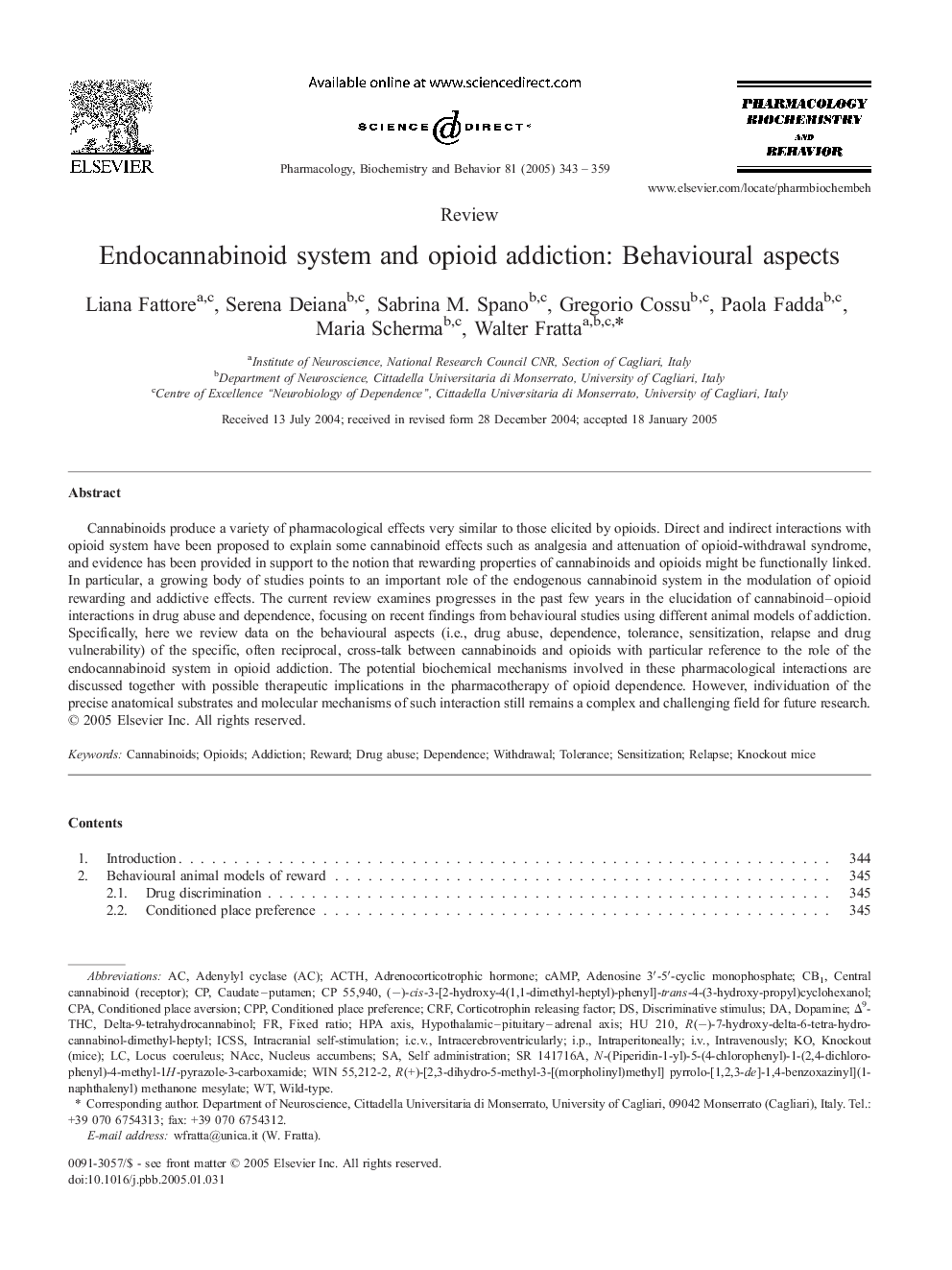| Article ID | Journal | Published Year | Pages | File Type |
|---|---|---|---|---|
| 10838727 | Pharmacology Biochemistry and Behavior | 2005 | 17 Pages |
Abstract
Cannabinoids produce a variety of pharmacological effects very similar to those elicited by opioids. Direct and indirect interactions with opioid system have been proposed to explain some cannabinoid effects such as analgesia and attenuation of opioid-withdrawal syndrome, and evidence has been provided in support to the notion that rewarding properties of cannabinoids and opioids might be functionally linked. In particular, a growing body of studies points to an important role of the endogenous cannabinoid system in the modulation of opioid rewarding and addictive effects. The current review examines progresses in the past few years in the elucidation of cannabinoid-opioid interactions in drug abuse and dependence, focusing on recent findings from behavioural studies using different animal models of addiction. Specifically, here we review data on the behavioural aspects (i.e., drug abuse, dependence, tolerance, sensitization, relapse and drug vulnerability) of the specific, often reciprocal, cross-talk between cannabinoids and opioids with particular reference to the role of the endocannabinoid system in opioid addiction. The potential biochemical mechanisms involved in these pharmacological interactions are discussed together with possible therapeutic implications in the pharmacotherapy of opioid dependence. However, individuation of the precise anatomical substrates and molecular mechanisms of such interaction still remains a complex and challenging field for future research.
Keywords
i.c.v.ACTHSR 141716AHU 210Δ9-THCi.v.intracerebroventricularlyICSSNAccCB1CRFCPPCPAi.p.cAMPcaudate–putamenCP 55,940WIN 55,212-2Self administrationAddictionOpioidsWithdrawalconditioned place preferenceToleranceSensitizationIntracranial self-stimulationIntraperitoneallyintravenouslydelta-9-tetrahydrocannabinolDopamineDrug abusecorticotrophin releasing factorrelapselocus coeruleusdiscriminative stimulushypothalamic–pituitary–adrenal axisHPA axisKnockout miceconditioned place aversionfixed ratiowild-typeNucleus accumbensadrenocorticotrophic hormoneDependenceRewardCannabinoids
Related Topics
Life Sciences
Biochemistry, Genetics and Molecular Biology
Biochemistry
Authors
Liana Fattore, Serena Deiana, Sabrina M. Spano, Gregorio Cossu, Paola Fadda, Maria Scherma, Walter Fratta,
